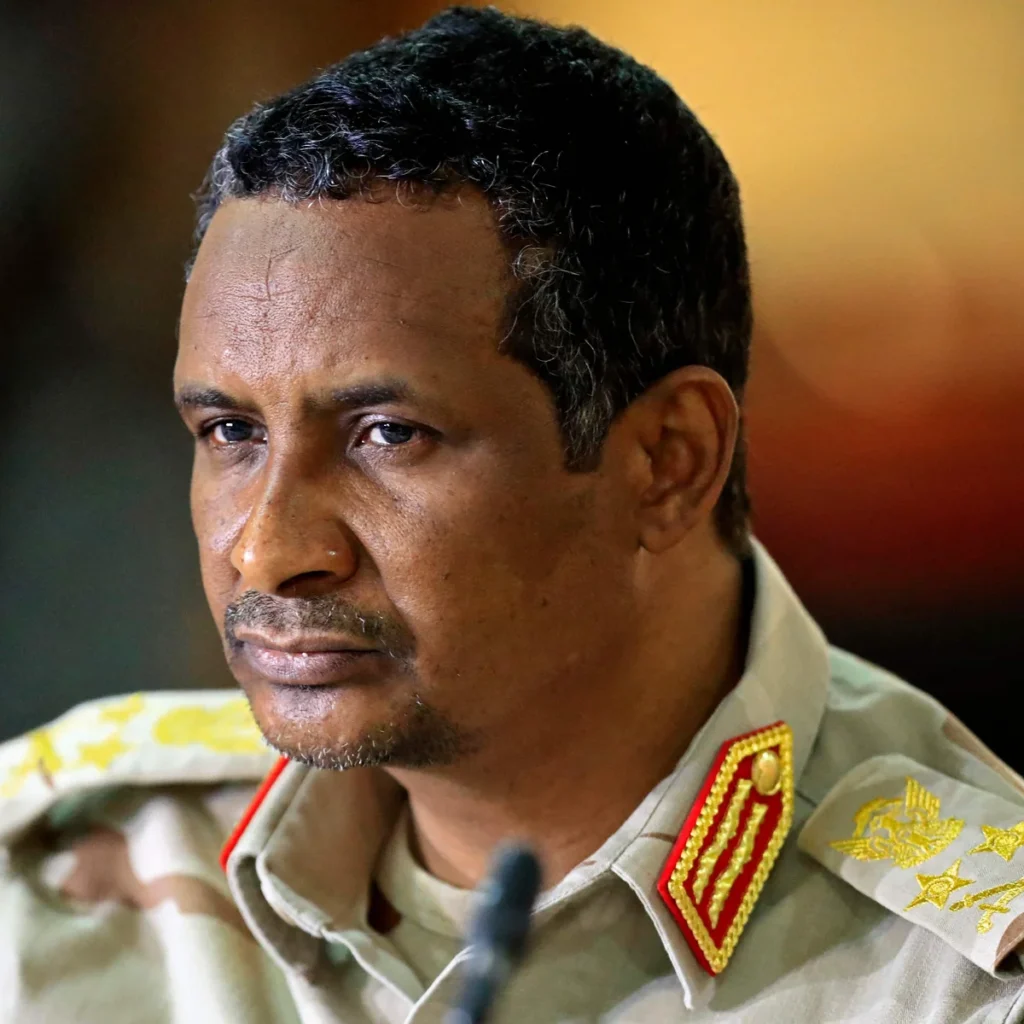Mohamed Hamdan Dagolo, widely known as Hemedti, has transformed from a humble camel trader into one of Sudan’s most powerful men. As the commander of the paramilitary Rapid Support Forces (RSF), Hemedti now controls vast parts of the country, shaping the course of Sudan’s brutal conflict.
Born in 1974 or 1975 into the Rizeigat community of Darfur, Hemedti dropped out of school as a teenager to trade camels across Libya and Egypt. His fortunes changed during the early 2000s when then-President Omar al-Bashir armed Arab militias, known as the Janjaweed, to suppress rebellion in Darfur. Hemedti emerged as a key commander, accused of leading violent campaigns marked by atrocities that drew international condemnation.
Despite his controversial past, Hemedti’s strategic shrewdness propelled him upward. After a brief mutiny for better pay and recognition, he was appointed to lead the newly formed RSF in 2013 a paramilitary force reporting directly to Bashir. His family company, Al-Gunaid, became Sudan’s largest gold exporter after gaining control of lucrative mines in Jebel Amir.
Hemedti’s reach extended beyond Sudan. He supplied mercenaries to Saudi Arabia and the UAE for the Yemen war, forging close ties with Gulf leaders, particularly Abu Dhabi’s ruler Mohamed bin Zayed. His alliance with Russia’s Wagner Group, involving gold trade and training exchanges, added to his global network.
In 2019, Hemedti turned against Bashir during mass protests, helping to topple the long-time ruler. Briefly hailed as a reformer, his image soon darkened as RSF forces were implicated in violent crackdowns.
Today, Hemedti commands a parallel army, rivaling General Abdel Fattah al-Burhan’s Sudanese Armed Forces. His rise from desert trader to a man wielding immense military and economic power underscores Sudan’s complex struggle between ambition, survival, and statehood.

